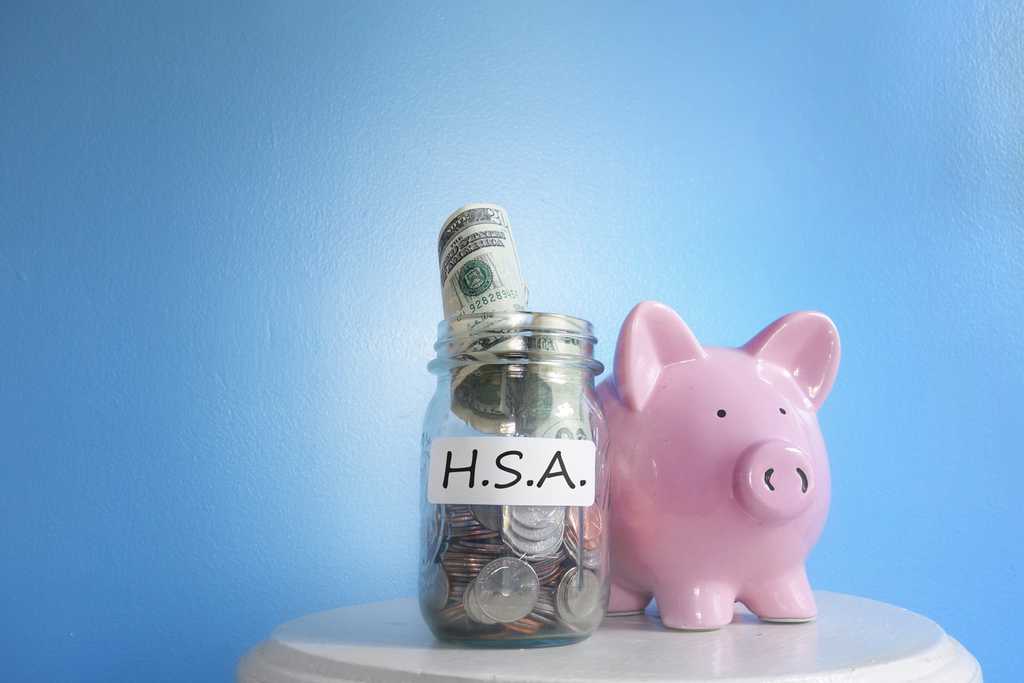Health insurance is one of the most expensive line items on the budget. It can lead many people who are struggling financially to go without. Unfortunately the risks of going without health insurance can cost you more than the savings. Two-thirds of people who file for bankruptcy cite medical issues as a key contributor to their financial downfall.
The better option, if you’re trying to save money on health insurance, is to opt for a high-deductible health plan, HDHP. Having a plan with a high deductible means you save on monthly premiums without as much risk of bankruptcy.
If you’re worried about the out of pocket costs associated with a HDHP then you should consider saving into a Health Savings Accounts, HSA, a tax-advantaged savings account you can only get while on a HDHP.
What is an HSA?
An HSA is a type of savings account that lets you save money on a pre-tax basis to pay for qualified medical expenses. It allows people who have higher out-of-pocket medical costs, due to a high-deductible plan, to save more money for those expenses with less tax burden.
The idea is that by using untaxed dollars to pay for deductibles, copayments, coinsurance, and other expenses, you may be able to lower your overall health care costs, by up to 37% depending on what tax bracket you’re in. And if you don’t use the funds you may be able to invest them and grow your savings for future health related needs.
Who Qualifies For an HSA?
To qualify for an HSA you must first be enrolled in a high-deductible health insurance plan, HDHP, as defined by the government. Not all high-deductible health plans are eligible for an HSA and all plans are re-defined each year by the IRS so you’ll want to be sure to look for plans specifically tagged “HSA-eligible” every open enrollment.
The HSA enrollee must also be under age 65, cannot be claimed as a dependent on anyone else’s federal income tax return, nor can they be covered by any other plan, such as a spouse’s plan.
How Does an HSA Work?
Health savings accounts are typically administered by banks, credit unions, and insurance companies. If you have an eligible HDHP and meet the other requirements then you can contribute to a health savings account up to an annual limit.
You can usually make contributions through payroll deductions directly into an HSA. If your employer doesn’t offer that option, then you can open a separate HSA as long as you have a qualifying plan.
Contributions to your HSA
In 2021 the annual contribution limit for an individual is $3,600 and for a family it’s $7,200. If you’re 55 or older, you can contribute an additional catch-up contribution of $1,000 per year.
There are several advantages to contributing to an HSA, even if you don’t have a lot of medical expenses. The first is the triple tax advantage:
- HSA contributions are pre-tax, if made through payroll deduction via an employer, or tax-deductible if you open your own.
- You don’t pay tax on withdrawals for eligible healthcare expenses.
- You don’t pay taxes on the account’s growth.
If your contributions are made via payroll withholding then you also don’t have to pay FICA taxes which saves you another 7.65%.
Lastly, contributions can come from you, your employer, a relative, or anyone else who wants to put money toward your HSA. Meaning your employer may offer a match or a relative may give you money via your HSA. But note that only the owner of the HSA gets tax breaks for contributing.
Withdrawals from your HSA
Most HSAs give you access to a debit card making withdrawals easy. You can pay for any eligible expenses in any store using your debit card. If you want to pay for a medical bill you can call the billing center and use your debit card to make a payment over the phone, be sure to try to negotiate it down first.
You can also pay out of pocket and reimburse yourself later. There’s no limit to when or how much you can reimburse yourself; you'll just need to submit the receipt to prove the money was spent on an eligible expense in the past.
From prescriptions and over-the-counter medications to acupuncture and lasik eye surgery, eligible expenses include a wide range of medical, dental, and mental health services.
What are the advantages of an HSA
Whether you anticipate having healthcare expenses or not, there are a number of reasons an HSA is a good account to add to your personal finances.
HSA savings can be invested
Most savings accounts earn a paltry .01% with no option to optimize the money that’s sitting there. An HSA takes a different approach. When you reach a certain threshold, typically $2,000, you can then elect to start investing additional HSA contributions.
Your contributions are typically invested in mutual funds which offer some diversification that can protect your money from volatility in the market. If you plan to invest your HSA balance, make sure your HSA custodian allows investing.
HSA savings roll over year-to-year
Unlike a Flexible Spending Account, FSA, money left in your HSA at the end of the year rolls over to the next year. Even if you change health insurance plans or employers, the money in your HSA is yours just like if you’d put it in a traditional savings account
Your HSA can become a retirement account if you don’t use it
If you elect to invest your HSA contributions and don’t end up using all of it then at 65 that account becomes like a traditional IRA. You will pay tax on withdrawals but you can use the money on non-eligible expenses without penalty.
The HSA may also be a tool for early retirement. If you pay for medical expenses out-of-pocket and save the receipts you can let your HSA grow and withdraw the billed amount later for any reason as long as you submit the receipt.
What are the downsides of an HSA?
While there are definitely advantages to an HSA, there are a few downsides to consider, mainly in regards to the health insurance plan required for eligibility.
You must be in a high-deductible plan
If you have a chronic illness or physical limitation that requires frequent doctor visits or high healthcare costs, a high-deductible plan may not be right for you or your family.
In 2021, the minimum deductible for a plan to be eligible for an HSA is $1,400 for an individual and $2,800 for a family but some HSA-eligible plans offered by employers can have deductibles and out-of-pocket expenses higher than that.
Typically high deductible plans and HSAs are best for healthy people who are unlikely to need medical care beyond routine checkups. You’ll need to calculate the cost of your plan and your out-of-pocket expenses to see which route saves you more.
You can’t use HSA savings to pay premiums
Insurance premiums are typically not considered qualified medical expenses. A few exceptions to that would be long-term care insurance premiums, healthcare continuation coverage (like COBRA), health insurance premiums paid while receiving unemployment, or Medicare and other healthcare coverage if you’re 65 or older (excluding premiums for Medicare supplemental policies).
You’ll pay taxes, and possibly penalties, on non-qualified expenses
If you withdraw funds for non-qualified expenses before age 65, you'll owe income taxes on the money plus a 20% penalty. After age 65, you'll owe taxes but not a penalty. So if you want to withdraw reimbursement for qualified expenses in the future you’ll need a good recordkeeping system to store receipts.
Health Savings Accounts Are a Great Way to Save on Healthcare Costs
If an eligible high-deductible health insurance plan is the right choice for you then you should definitely take advantage of an HSA either through your employer or opening one on your own.
When you consider the tax savings and the growth that you could potentially receive through your HSA’s investment account you could potentially end up with tens of thousands of dollars in savings over your lifetime.
But again, a high-deductible plan isn’t right for everyone. Do the math for your family before making any financial decisions.

